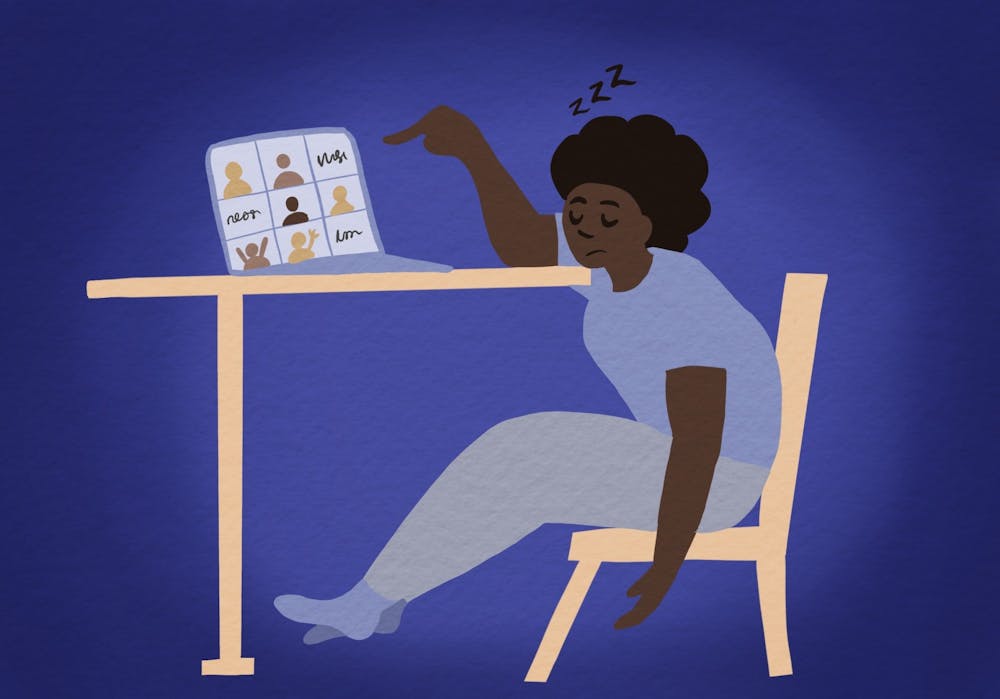It’s sunny and 75 degrees and the Bryan Center Plaza is flooded with masked students soaking in the sun during their Zoom lectures, socially distanced with friends.
Despite the peaceful scene, many students dread heading back to their desks to finish academic responsibilities for the semester. After months on end with no real academic breaks, burnout has settled in for many.
“I don’t feel the point of it sometimes,” first-year Emily Miller said. “Doing 13 straight weeks of school, you never have a moment to take a breath.”
Miller finds herself affected by burnout when she seems to be falling behind in her classes. It settles in for her after the first wave of midterms begins and “it doesn’t calm down,” she said. She added that sitting at her computer for hours on end doesn’t help.
Sophomore CJ Tyson finds himself losing motivation after academic disappointment.
“I work hard for something, turn it in, get it back and don’t get the grade that I wish I would have gotten after all the time I spent doing it,” Tyson explained.
For senior Eric Little, burnout comes in the form of a cost-benefit analysis. With the weather being nice and outdoor activities appealing more than homework, “the opportunity cost of doing other stuff is so high,” he said.
Tyson described his need to change scenery often while sitting in front of the neuroscience textbook he needed to read for an assignment. With Duke’s COVID-19 protocol in place, he has had to adapt to studying at the desk in his dorm room.
“I’m a huge library dude,” Tyson said, lamenting the lack of study spaces available this semester.
Little agreed that pandemic protocol has played a large part in his burnout this year.
“We’re not in college right now, we’re in school,” he said while waiting in a computer science office hours Zoom queue, which he had been waiting on for a few hours already.
Miller, Tyson and Little all said that their peers also feel burnout and that it comes in different forms for everyone. Students also cope with the burnout differently.
Miller finds herself sleeping off the stress of the week when necessary. Last semester, she took up knitting, making scarves and headbands.
“It gave me something to do with my hands so I wasn’t sitting around doing nothing,” she said. Miller also finds relief through playing her guitar.
Tyson, a member of the Duke Symphony Orchestra, also takes time to play music when he no longer is capable of opening up a textbook.
“I grabbed my cello and went to the practice room and practiced for two hours,” he said. “I came back to my room and felt rejuvenated to start my work.”
Despite the stress and fatigue that comes about throughout the semester, “it gets so much better,” Tyson said.
Little takes advantage of the free Headspace meditation and sleep app accounts provided by Duke Student Government this semester.
“Sleep the problems away,” Little said, describing how taking his mind off his work allows him to refuel for the next project.
Get The Chronicle straight to your inbox
Sign up for our weekly newsletter. Cancel at any time.

